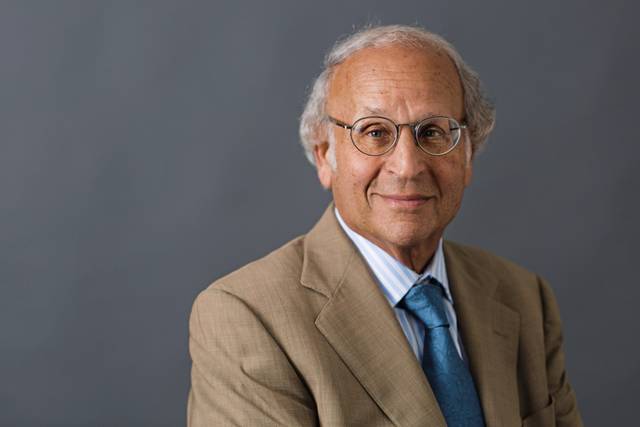A leader at Indiana University, the nation’s largest medical school, will take over as senior vice chancellor for the health sciences and dean of the School of Medicine at the University of Pittsburgh in June.
Dr. Anantha Shekhar, who serves as executive associate dean for research affairs and several other leadership roles at Indiana University, will replace Dr. Arthur Levine, a highly regarded leader who was instrumental in developing key clinical and research programs at Pitt.
“This is a critical hire for the University of Pittsburgh,” Chancellor Patrick Gallagher said in a statement. “Anantha’s capacity to envision solutions, galvanize partnerships and produce results is second to none, and his record of propelling both people and institutions to success is unparalleled. I could not be more excited to welcome Anantha into our community, and I am already looking forward to his arrival in June.”
Shekhar is credited with growing the Indiana University School of Medicine research funding and securing millions of dollars to expand work in areas like genomic medicine and big data sciences, according to a statement from Pitt.
He is also known for his work as an entrepreneur, co-founding or leading five biotech companies, and forming commercial incubators affiliated with the university to help support new medical companies.
“I am honored and inspired to be joining one of the most respected medical and research communities in the world,” Shekhar said in a statement. “Building on the University of Pittsburgh’s exceptional record of health sciences education, innovation, clinical excellence and research preeminence is my top priority, and I look forward to advancing this goal in partnership with UPMC — for the greater good of society — in the months to come.”
Shekhar was born in India and earned his medical degree from St. John’s Medical College in India. He earned a joint M.D./Ph.D. in neuroscience at Indiana University.
He has worked in areas related to post-traumatic stress disorder, traumatic brain injury, neuropathic pain, depression, schizophrenia, panic and anxiety disorders as well as Parkinson’s and Alzheimer’s disease.
The Pitt Board of Trustees will vote to make Shekhar an officer of the board, finalizing his hiring, in February. He will oversee all six health sciences schools, about 6,000 faculty and staff as well as about 5,000 students.
Levine, who joined Pitt in 1998, announced his intention to step down in January 2019 but stayed on to continue his leadership duties as Pitt conducted a national search for his replacement.
He is credited with elevating the university’s profile in research circles, expanding the medical school’s recruitment efforts and establishing a long list of programs and initiatives that boosted the university’s curriculum.
Pitt officials said his efforts led to the establishment of the nation’s first Department of Critical Care Medicine in 2002, a new Department of Immunology in the same year, the Department of Computational and Systems Biology in 2004, the Department of Structural Biology in 2005, the Department of Biomedical Informatics in 2006 and the Department of Developmental Biology in 2009.
He established the Drug Discovery Institute in 2005, the Center for Vaccine Research two years later, the Center for Military Medicine Research in 2012, the Institute for Precision Medicine in 2013 and the Brain Institute in 2014.
A statement from Pitt on Monday said that Levine will transition to a new research role within the university but did not provide additional details.











